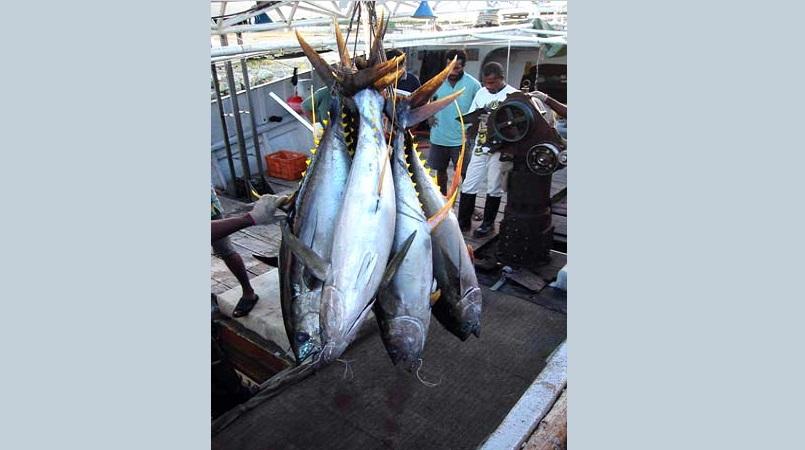
The Pacific Islands Forum Fisheries Agency (FFA) has commended the “inspirational” achievement of Papua New Guinea with the EU lifting of its yellow card tuna exports status this month.
The EU market-- the world’s leading recipient of tuna, has stringent rules on processing ensuring safety for consumers, and sourcing rules to ensure fish were caught in compliance with fishing rules and reporting processes. The EU market is the largest recipient of PNG’s tuna, valued at around 140mUSD annually.
“I know all our member countries join me and the FFA secretariat in commending PNG for having achieved recertification,” says Director General James Movick, “there are thousands of workers across the national processing industries in PNG, and those businesses that support them, who will be smiling at the EU announcement.”
“The National Fisheries Authority with the support of the PNG government has shown tireless commitment and flexibility in rising to the challenge of adapting to and embracing a strict global standard. Government has paved the way for the industry ensuring more economic benefits for Papua New Guineas onshore processing industry and we stand ready to provide ongoing support to PNG to implement the reforms it has commenced and, to assist other members in this regard”.
DG Movick says the lifting of the yellow card status for PNG, placing it in full compliance with EU fish handling and traceability certification, “provides an inspiration to the rest of the region and a template for other interested FFA members to pursue.”
EU-funded development and technical resources to assist NFA came from the FFA/SPC DEVFISH II project. Under the assistance aimed at strengthening compliance and support to help Pacific nations exporting to global tuna markets, Economic and compliance advisers from FFA joined DEVFISH II consultants in Papua New Guinea, helping the National Fisheries Authority clear the yellow card status.
“It has not been easy for PNG and other members to deal with yellow card status, but the rules of global markets apply to any commodity, and tuna is no exception,” he says.
“Our Pacific member nations have had a long history of rigorous engagement with the EU on tuna fisheries, and while we may hold opposing views on some fronts, on others, such as ensuring the Pacific can meet a global standard for exporting its own tuna, we most definitely agree,” says DG Movick.
“This achievement by PNG demonstrates the Pacific can accommodate global requirements where we share the same goals. While other aspects of the trade and tuna relationship with the EU may not share that mutual nature, we remain engaged in ensuring the outcome for our members is one that delivers the sustainable economic benefits our Pacific leaders want,” he said.
